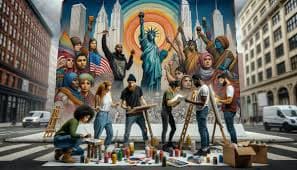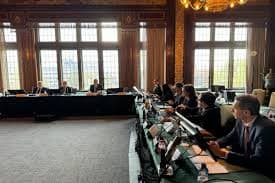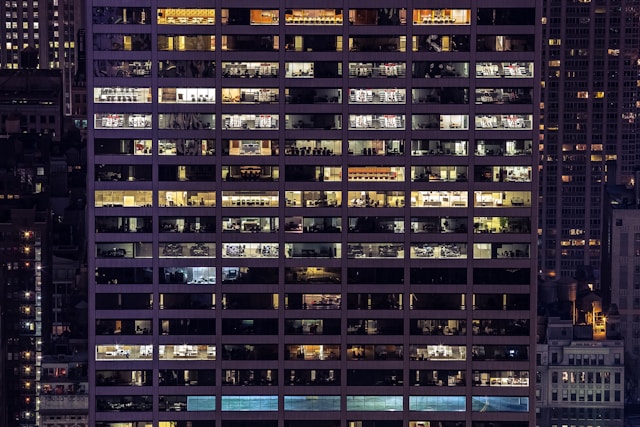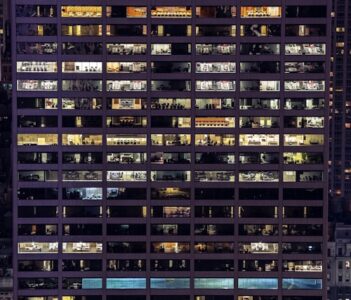From vibrant street murals to contemporary digital installations, art has long served as a powerful tool for civic expression. Today, in an era of global sanctions and international conflict, artistic expression faces new legal and political barriers. This is especially noticeable in multinational cultural spaces like Antioch, where different traditions and political realities intersect. In such an environment, OFAC sanctions have a significant impact on cultural exchanges by blocking assets and limiting the freedom of artists, which calls into question the ability to develop and protect art as a form of protest.
Art and Protest: When Paint Speaks Louder Than Words
Protest art is not only traditional forms such as graffiti or murals, but also new directions: digital art, musical and theatrical performances. They reflect social and political challenges, mobilizing public opinion and making people think about pressing issues.
In Antioch, local artists are actively using street art to express civic positions, telling stories about migration, inequality, and freedom. Their work becomes a tool for critiquing and unifying society, giving a voice to those who are usually overlooked.

Limits of Freedom: Legal Aspects of Self-Expression
The First Amendment to the U.S. Constitution provides for freedom of speech and expression, but this freedom is not absolute. The law sets clear boundaries between art and illegal activities such as vandalism, extremism, or incitement to violence. There have been cases where artists have faced restrictions and even prosecution for their work, but legal protection has allowed them to defend their artistic freedom in court. Today, sanctions regulations, in particular OFAC measures, complicate international cooperation and the transfer of funds, which affects the financing and organization of exhibitions. In such circumstances, the assistance of qualified professionals is important, such as OFAC Lawyer, which help navigate the complexities of the law and provide legal support to artists and cultural organizations.
Art under sanctions: blocked assets and international restrictions
OFAC sanctions have a serious impact on artists and the art industry: freezing of financial resources, restrictions on participation in international exhibitions, difficulties with selling works. The problem blocked assets becomes acute when, for example, a painting purchased from an artist from Iran ends up being blocked in accounts.
To circumvent such restrictions, special licenses and legal assistance are used, but bureaucratic procedures and risks remain significant, which hinders the development of cultural exchange.
Copyright and the public space
Street art is a unique phenomenon where issues of property rights and copyright collide with the peculiarities of public space. In a number of court cases, artists have defended their rights to street art, even if the works were created without formal permission.
Sanctions mechanisms complicate the international protection of intellectual property, limiting opportunities for legal support and exchange of experience between artists from different countries.

Law and the Artist in Antioch: The Local Context
Antioch is a city with a rich cultural history and an active civic arts scene, with projects supporting artists from sanctioned countries, helping to maintain cultural dialogue and integration.
Local legislation seeks to regulate street art, balancing between supporting creativity and protecting public order. In such circumstances, legal protection of artists, both locally and internationally, is especially important.

